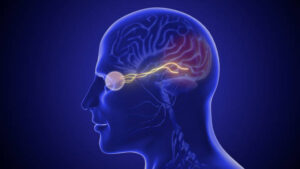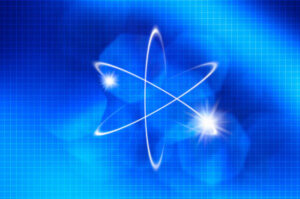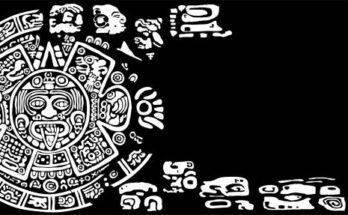The relationship between religion and science has been a subject of intense scrutiny throughout history. As scientific discoveries continue to reshape our understanding of the universe, the dynamic interplay between faith and reason becomes increasingly evident. This article delves into the ways in which religion changes within the context of scientific discovery, exploring the tensions, reconciliations, and transformations that mark this complex relationship.
-
The Historical Rift
Throughout much of history, religion and science were often viewed as incompatible forces, with each claiming authority over distinct domains of knowledge. The Galileo affair in the 17th century exemplifies this historical tension. Galileo’s heliocentric model challenged the geocentric view endorsed by the Catholic Church, leading to his condemnation. This clash exemplifies the historical reluctance of religious institutions to embrace scientific findings that challenged established dogma.
-
Reconciliation Attempts
Despite historical conflicts, there have been numerous attempts to reconcile religious beliefs with scientific discoveries. As scientific knowledge expanded, some religious thinkers sought to reinterpret sacred texts to align with the evolving understanding of the natural world. Theistic evolution, for example, proposes that the processes of evolution are consistent with a divine plan, allowing for the acceptance of evolutionary theory within religious frameworks.
-
Ethical Considerations
 (Photo from iStock)
(Photo from iStock)
Scientific progress often raises ethical questions, and religious traditions play a significant role in shaping ethical frameworks. The advent of technologies like genetic engineering, artificial intelligence, and cloning has prompted religious communities to engage in dialogues about the ethical implications of these advancements. The intersection of science and ethics becomes a space where religious values are revaluated and adapted in response to emerging technologies.
-
The Anthropocentric Shift
Scientific discoveries have also challenged humanity’s perception of its place in the universe. The Copernican revolution displaced Earth from its central position, while Darwinian evolution removed the notion of human exceptionalism. These shifts in perspective have led to theological reflections on the nature of God’s creation and the role of humanity within it. Some religious traditions have embraced these scientific insights, incorporating them into their understanding of divine purpose.
-
Environmental Awareness
 (Photo from iStock)
(Photo from iStock)
Scientific discoveries, particularly in the field of environmental science, have heightened awareness about humanity’s impact on the planet. This has led to a growing emphasis on environmental stewardship within religious communities. Many faith traditions now view ecological responsibility as a moral imperative, influenced by scientific evidence highlighting the urgent need for sustainable practices.
-
Interfaith Dialogues
In an increasingly interconnected world, the intersection of religion and science extends beyond individual belief systems. Interfaith dialogues bring together representatives from various religious traditions to discuss shared concerns related to scientific advancements. These dialogues provide a platform for the exchange of ideas, fostering mutual understanding and cooperation in addressing ethical and societal challenges posed by scientific progress.
-
Challenges and Resilience
While some religious traditions adapt to scientific discoveries, others face challenges in reconciling their beliefs with evolving knowledge. The rise of fundamentalism in various religious communities reflects a resistance to scientific ideas that challenge traditional interpretations. However, even within these contexts, there are individuals and movements working to find a middle ground, emphasizing that faith and reason can coexist.
-
Neuroscience and Consciousness
 (Photo from iStock)
(Photo from iStock)
Advancements in neuroscience have raised questions about the nature of consciousness and the soul. As scientists explore the intricacies of the brain, religious traditions are prompted to reconsider their understanding of the human spirit. This intersection challenges religious communities to engage with scientific insights into consciousness while maintaining their unique perspectives on the nature of the soul.
-
The Role of Faith in Scientific Inquiry
While science and religion are often portrayed as conflicting, many scientists find inspiration in their faith. Numerous pioneers in scientific fields have expressed how their religious beliefs motivate their exploration of the natural world. The integration of faith and scientific inquiry highlights the multifaceted nature of the relationship between these two realms, demonstrating that they can coexist harmoniously in the pursuit of knowledge and scientific discovery.
The rapid advancement of technology, particularly in the fields of artificial intelligence and biotechnology, introduces new challenges to religious perspectives on human nature and the boundaries of life. The concept of transhumanism, which envisions the enhancement of human capabilities through technological means, raises profound theological questions. Religious communities grapple with the ethical implications of technologies that blur the lines between the natural and the artificial, challenging traditional notions of what it means to be human.
-
The Search for Extra-terrestrial Life
Scientific exploration of the cosmos has expanded our understanding of the vastness of the universe. The discovery of exoplanets in the habitable zone. And the ongoing search for extra-terrestrial life provoke theological reflections on the potential existence of other intelligent beings. Some religious traditions readily incorporate the idea of extra terrestrial life into their cosmology. While others may find it challenging to reconcile such possibilities with their sacred texts. The search for extra terrestrial life invites a re-examination of religious narratives about creation and the uniqueness of life on Earth.
-
Quantum Physics and Mystical Perspectives
 (Photo from iStock)
(Photo from iStock)
The intricate principles of quantum physics challenge classical notions of determinism and causality, prompting comparisons with mystical and spiritual concepts. Some theologians and philosophers argue that the interconnectedness and uncertainty inherent in quantum mechanics align with certain spiritual principles. This intersection invites a nuanced exploration of the relationship between scientific understanding. Furthermore, mystical experiences, illustrating the evolving nature of the dialogue between science and religion.
Conclusion
In the ever-evolving interplay between religion and scientific discovery, the challenges and opportunities presented by emerging technologies, cosmic exploration. And quantum phenomena continue to reshape our collective worldview. The ongoing dialogue between faith and reason. Rather than being a source of conflict, becomes a dynamic process of adaptation and transformation. As humanity navigates the frontiers of knowledge. Eventually, the intricate dance between religion and science persists, inviting us to explore the profound questions. Evidently, that define our existence and shape the future of both belief systems and scientific inquiry and scientific discovery.
Reference:
The University of Waikato
Want to know about creation of the world, click on the link below:
How Can Religion Be Created? Exploring the Origins and Evolution




